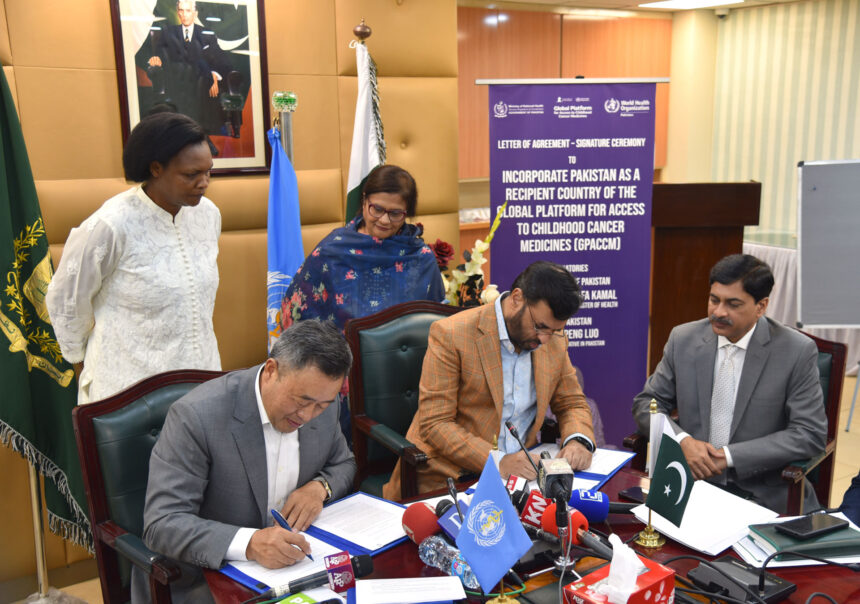On July 29, 2025, Pakistan signed an agreement with the World Health Organization (WHO) to provide free cancer medicines to 8,000 children annually. This agreement, part of the Global Platform for Access to Childhood Cancer Medicines (GPACCM), aims to transform pediatric cancer care in Pakistan by boosting survival rates from 30% to 60% by 2030.
Free Cancer Medicines for Children
The agreement, formalized between Health Minister Mustafa Kamal and WHO Representative Dr. Dapeng Luo, ensures an uninterrupted supply of quality-assured cancer medicines for children until December 31, 2027, with the possibility of extension.
UNICEF is to handle procurement and delivery, while WHO will provide technical and operational support to strengthen Pakistan’s health system.
This initiative addresses a critical gap, as Pakistan reports around 8,000 new childhood cancer cases each year, with limited access to treatment contributing to a 70% mortality rate in low- and middle-income countries.
“This is a big day for Pakistan,” Kamal declared during the signing ceremony. “Through this agreement, we secure essential medicines for children battling cancer. We are grateful to WHO, UNICEF, and all partners for making this possible.”
The initiative aligns with the WHO’s Global Initiative for Childhood Cancer, launched in 2018, which seeks to save 1 million lives by improving access to treatment.
National Diarrhea Control Plan
Alongside the cancer agreement, Kamal introduced the National Diarrhea Control Plan 2025–2028, focusing on preventing waterborne diseases like diarrhea, which disproportionately affect children.
He highlighted the urgent need for clean water and proper sewage treatment, noting that 68% of hospital overcrowding could be alleviated with access to safe drinking water.
“Sewage from one region mixes with drinking water in another,” Kamal said, criticizing the lack of sewage treatment infrastructure. “This is a crisis we must address at its root.”
Broader Health Challenges in Pakistan
Kamal underscored the strain on Pakistan’s healthcare system, warning that failure to prioritize prevention could lead to a paralyzing crisis.
“No country can sustain a healthcare system overwhelmed by disease,” he said.
The Health Minister pointed to alarming statistics: 43% of Pakistani children suffer from malnutrition, 11,000 women die annually from pregnancy complications, and the country’s fertility rate remains stagnant at 3.6 births per woman, hindering development.
The minister stressed that healthcare begins outside hospitals, urging lifestyle changes and public cooperation.
“Our dream is a healthy society, starting with the health of mothers and children,” he said.
Kamal also called for greater vaccine acceptance, noting that health workers still face resistance despite delivering polio drops and vaccines for 12 preventable diseases directly to communities.
“Parents must take responsibility and seek out vaccination centers,” he urged.
Collective Efforts
Kamal emphasized that the government alone cannot tackle Pakistan’s health challenges.
“We need the public to work with us, not against us,” he said, addressing vaccine hesitancy and the need for better public health practices.
He highlighted the burden on hospitals, which are “overflowing with children suffering from cancer,” and stressed that prevention—through clean water, vaccinations, and nutrition—is more critical than treatment alone.


Leave a Reply